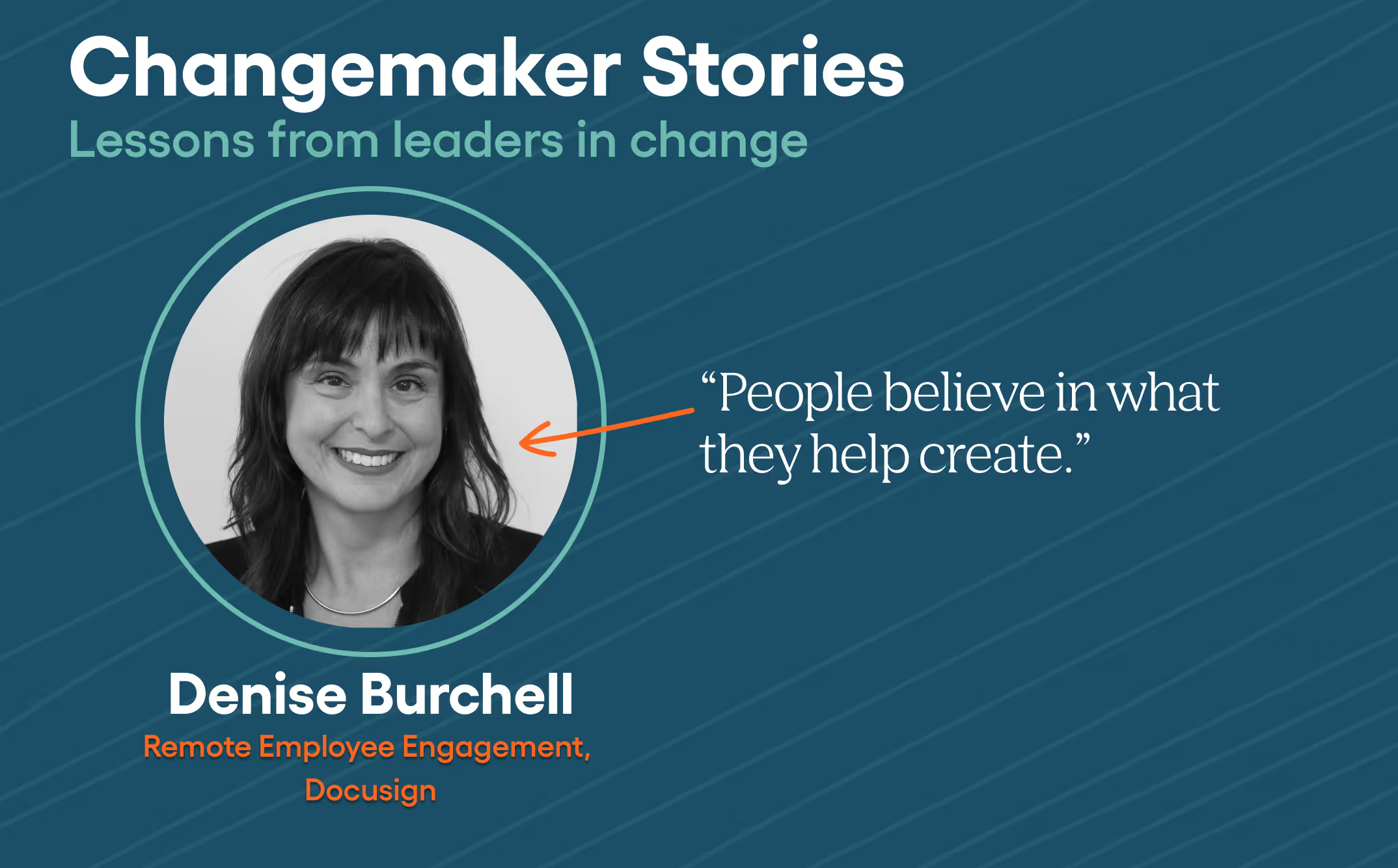

Welcome to Changemaker Stories from LOCAL—an ongoing series of personal interviews with leaders driving change across every industry and discipline. Because change shouldn’t mean going it alone.
Denise Burchell is a seasoned design leader with over two decades of experience across service design, product strategy, and organizational change. She currently sits on the People Team at Docusign, where she’s applying a design lens to hybrid work, culture, and ways of working. With a background at IDEO, Salesforce, and beyond, Denise brings a deeply human-centered approach to shaping how companies collaborate, evolve, and grow.
Design isn't just for products—it's a problem-solving toolkit for the entire business. At IDEO, I learned how to run powerful workshops. At Salesforce, I helped define “relationship design.” Now, I’m applying those skills to culture and operations. The most important part? Getting people to talk to each other about what they really need to do great work. My job is to frame the right questions and co-create practical ways of working that feel real—not imposed.
I’m not trying to convince people the problem matters. I’m showing them it’s solvable. Change starts with the “friendlies”—the people already motivated to do better, but unsure how. I invite them in, prototype with them, and then spotlight their wins to inspire others. We don’t need one-size-fits-all solutions. We need behavior-focused strategies that adapt to different teams and cultures. That means understanding how work actually gets done—not just how leaders think it should.
Culture defines what people do by default—so you’d better design for it. I’ve worked across marketing, product, engineering, experience design, brand strategy, and design ops. One lesson is universal: if you ignore culture, your strategy won’t stick. Values aren’t words on a wall. They must be both true and aspirational. When I help companies activate their values, I start by asking: When are you at your best? From those stories, we extract behaviors. And behaviors are what drive change.
"You can't scale culture without structure."
Storytelling is qualitative currency. It’s not enough to show people the shiny outcome. You have to show the mess, too—the doubt, the resistance, the shift. That’s how people relate. At Salesforce, we designed curricula that included storytelling at every turn. Because facts are forgettable. Stories embed. And when you hear your own story reflected back, you start to believe that change is not just possible—it’s personal.
Some of my best ideas come from couples therapy. Seriously. So many “workplace problems” are just relationship problems. Communication, trust, identity—these are human dynamics. If we want to fix the system, we have to design for the people inside it. That means expanding our toolkit beyond the business shelf and into the social sciences. It means listening deeply. And it means remembering: companies are just groups of people.
You can't lead real change unless you’re willing to be a beginner again. Global travel, parenting a neurodiverse child, picking up new skills—these things push me out of my comfort zone and force me to see the world differently. They build empathy, elasticity, and openness. The best changemakers I know put themselves in situations where they don’t have all the answers. That’s how you stay human in the work.